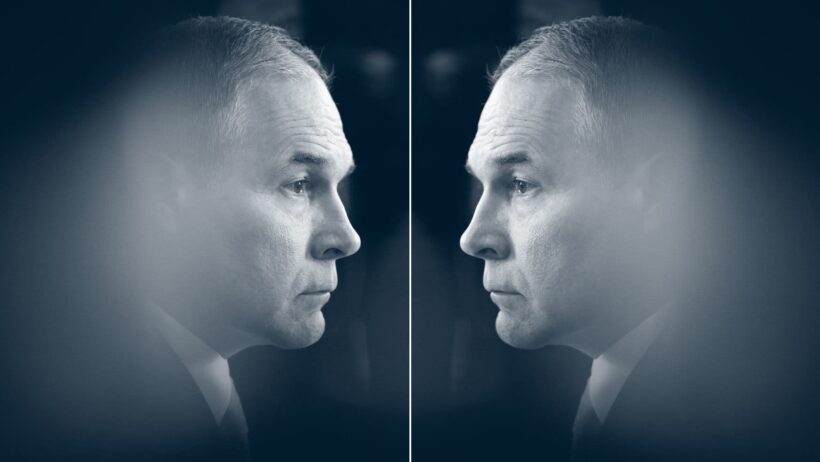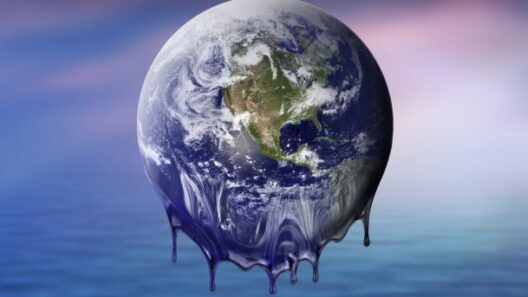As we traverse the rapidly shifting landscape of our planet, the calamitous specter of global warming looms overhead like a thunderous storm cloud, pregnant with the tumultuous rains of reality. The question of responsibility hangs in the air, a bitter fruit dangling from a tree of human choices. Are we really responsible for global warming? This inquiry necessitates a meticulous dissection, an examination not merely of facts, but of the intricate tapestry of human existence that interweaves with nature’s delicate balance.
To unravel the nuances of our planet’s climatic turmoil, we must first embark on an exploration of the anthropogenic foundations of global warming. Human activities—particularly the combustion of fossil fuels, deforestation, and industrial processes—have unleashed a torrent of greenhouse gases into the atmosphere. Visualize a balmy evening after a torrential downpour; the air seems thick and heavy, each breath pregnant with humidity. This vivid imagery can be likened to the enveloping warmth caused by the overabundance of carbon dioxide, methane, and nitrous oxide—the earth’s exceedingly generous, albeit insidious, blanket.
Let us consider the industrial revolution, a nexus of progress that heralded a new epoch in human history. Machines roared to life, factories belched smoke, and societies transformed. However, this seismic shift did not occur in isolation; it catalyzed a cascading series of ecological repercussions. The ground beneath us transformed into a battleground where nature struggles against the relentless advance of human innovation. We have carved our ambitions into the earth, extracting resources with a ferocity that far surpasses nature’s regenerative capabilities. Hence, we stand at the intersection of progress and peril, questioning who bears the burden for the consequences of our insatiable quest for advancement.
As we navigate this labyrinthine subject, it becomes essential to scrutinize the multifaceted nature of accountability. The concept of responsibility should not be relegated solely to the actions of individuals; rather, it spans governments, corporations, and societal constructs. A corporate titan may bask in the glow of profit margins, oblivious to the tempest brewing in the natural world. They release effluents and emissions, cloaked in the guise of economic necessity. Herein lies the essence of moral culpability: when economic prosperity directly corresponds to environmental degradation, the moral compass becomes obscured. It recalls the fable of the frog in the boiling pot; gradual increases in temperature go unnoticed until it is too late. The corporate insouciance toward sustainability mirrors this tragic narrative.
Moreover, the debate regarding responsibility cannot disregard the historical context of developed versus developing nations. The legacy of industrialization creates an inequitable burden; those who contributed the least to global warming often bear the most severe consequences. Imagine a potluck dinner where only a select few consume the bounty while others endure the aftermath of indigestion. This inequality sharpens the divide between the global north and south—a salient reminder that responsibility is not uniformly distributed. It speaks to an urgent ethical dilemma: How do we reconcile the disparity in contributions and consequences?
Nevertheless, while acknowledging the collaborative nature of this dilemma, we must also confront the uncomfortable truth that individual actions accumulate into a potent force for change. Each carbon footprint, each wasteful habit adds weight to the environmental scales. Our choices—as seemingly minor as they may feel—are the grains of sand that slowly erode the mountain of climate inertia. The path to sustainability beckons us to adopt a lifestyle that minimizes harm. This can manifest in our daily choices: reducing plastic usage, embracing renewable energy, and advocating for policy changes that prioritize environmental stewardship.
Transitioning from contemplation to action requires collective mobilization. Calamity often fosters a communal sense of urgency—a realization that we are inhabitants of the same sphere, bound by shared destinies. Hence, grassroots movements burgeon, filled with fervor and hope, echoing a unified call to arms. This movement acts as a balmy breeze, breathing life into the barren land of inaction, nurturing the seeds of activism to sprout into formidable actions. The convergence of diverse voices amplifies the urgency, challenging the status quo and compelling policymakers to contemplate the weight of their decisions.
In an era characterized by information saturation, the dissemination of knowledge becomes a two-edged sword. While it enhances awareness, it also threatens to desensitize audiences to the harrowing realities of climate change. The metaphor of the proverbial ‘crying wolf’ resonates here; as warnings proliferate, receptivity wanes. Media sensationalism may render environmental issues devoid of their gravity, instead treating them as mere narratives, transient yet captivating. The challenge remains to revitalize the discourse, transforming abstract data into compelling stories that resonate with humanity’s innate sense of belonging to the natural world.
As we ponder the weighty question of responsibility in global warming, we must embrace the multifarious dimensions of accountability that extend beyond the superficial. A rigorous confrontation with our industrial legacies, cultural narratives, and individual habits emerges as imperative. The reality is stark, yet it can also be transformative. In understanding our integral role within the environmental mosaic, we unlock pathways toward a more sustainable future—one where we not only acknowledge our culpability but also galvanize our collective will to forge pathways of renewal. In confronting the truth, we find empowerment; in recognizing our capacity for change, we discover hope. The journey toward environmental stewardship beckons, and now is the time to answer that call.







